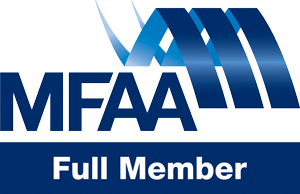
There are many different lending institutions today all with different assessment policies, approval criteria, interest rates, fees and special offers (usually for a limited time). Using a broker will help to identify the best fit for yourself. Also brokers can be aware of discounts and specials that may not be available to the public.
Once we get a good understanding of your current financial position a finance specialist will be able to evaluate your purchasing power.
A broker can help you to work out how much you can borrow. There are many different lenders with different serviceability criteria. So it is often important to find the right lender to maximise your borrowing capacity (not just obtain the cheapest rate).
There are many variables involved in applying for a loan. Once your goals have been established and certain structures recommended your broker will be able to give you a good understanding of exactly how long it is expected until your new loan is settled. But generally a loan can be applied for and subsequently approved by the lender within 1 – 2 weeks.
Your broker will do all the leg work for you and will organise the paper work and application process all the way through to settlement.
Brokers get paid a commission from the lenders. So there is no cost to use our service. Of course, normal lending fees and charges may apply.
There are many reasons for picking either a variable or fixed interest rate. You need to consider what your goals are for the next few years to establish what loan will suit your needs. The positives of fixing your interest rate is your repayments will remain the same due to the interest rate not changing. So this can be of benefit for budgeting purposes. Many lenders have restrictions on their fixed rate loans and limit how much extra you can pay without incurring penalties. You could also incur significant fees for breaking a fixed term, should you want to sell the property, for instance. That is why it is important to discuss these options with your broker and make an informed choice.
A deposit can come either from your savings or, if you already own a property, you can utilize the available equity for an additional purchase. There are also options for a Family member to help out with an “Equity Guarantee” in cases where savings are limited.
This varies depending on the purchase price of the property. Once we have established how much you can borrow, your broker will be able to indicate how much is required for the deposit. The amount of the deposit required also varies from lender to lender.
This is dependent on your current loan balance and your current interest rate. Once a new loan amount and new interest rate is identified it will then be compared to the current loan structure to determine the level of savings. To evaluate whether or not you will benefit from refinancing a specialist will look at the amount of savings you will incur from making the switch. This will then be compared to the cost of switching your home loan to conclude whether or not you will benefit from refinancing.
Ultimately consolidating your debts gives you the ability to reduce your monthly costs or allow your monthly repayments to work more efficiently. This is due to consolidating the smaller term, higher interest rate loans into a lower interest rate home loan. By continuing your current monthly repayments in the new loan it can assist in paying out your debts years sooner.
The First Home Owners Grant varies from State to State. But if you are entitled to apply for a grant, your Broker will help you with the paperwork and ensure your grant application is lodged in time for the funds to be received prior to settlement day.
There are multiple costs involved in purchasing a property, including Government stamp duties, registration fees, legal fees, lender fees and other optional costs such as building inspection fees. Your broker can help by listing these fees for you, which will vary depending on the price point.


